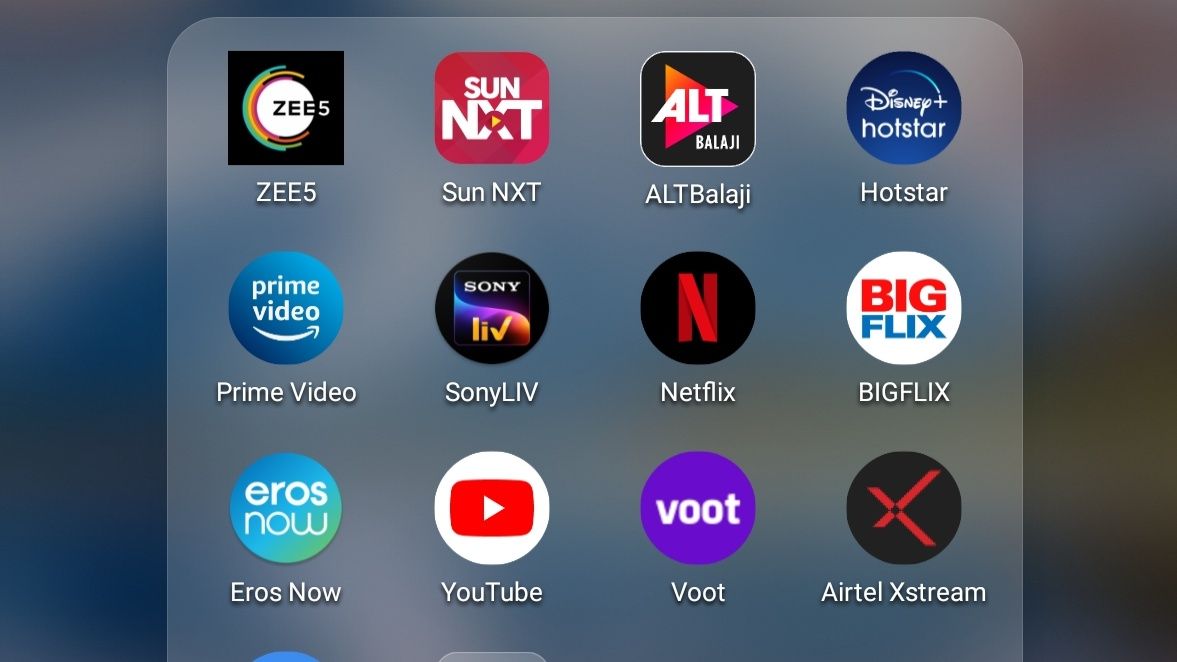Indian OTT platforms face government ire over content regulation - or lack of it
Censorship rears its ugly head again

India's fast growing online streaming services and OTT platforms could see stricter regulation in the near future that includes third-party monitoring. Proposals for self-regulation mooted by the apex body of internet and mobile service providers haven't found favour with the government that believes it is far too flexible.
The federal ministry for Information and Broadcasting has reportedly asked the Internet and Mobile Association of India (IAMAI) to reconsider its recently unveiled self-regulation proposals, and warned that it would not be supporting them till they create a mechanism for independent third-party monitoring and a code of ethics.
- Where to watch the La Liga matches from India
- 5 cricket movies and series to keep you company as IPL mood kicks in
- 6 interesting offerings on Indian OTT platforms
IAMAI welcomes the recommendation by the @TRAI [Telecom Regulatory authority of India] suggesting no regulatory intervention on Digital services based on data services by telecom operators, referred to as Over The Top (OTT) services. https://t.co/K7PeaBb05Y via @EttelecomSeptember 18, 2020
A report published in the Indian Express quotes from the letter to suggest that the proposals submitted by the IAMAI do not also clearly enunciate prohibited content while there is also a conflict of interest at the second and third-tier levels. The ministry asked the apex body to look at other self-regulatory models playing out in other countries.
The IAMAI, which came out with some norms earlier in September, said its goal was to empower consumers with information and tools that would assist them in making informed choices about viewing programs on OTT platforms and streaming devices. It emphasized that while providing such data that would govern viewership, the self-regulation rules would also ensure that creativity is nurtured so that content creators have the freedom to be creative.
How censorship works
India's film certification and censor board (CBFC) was set up in 1951 for regulating the public exhibition of films under provisions of the Cinematograph Act of 1952 which prevented content creators from screening these in theatres or television without certification.
The board's guidelines include a ban on glorification of anti-social activities and criminal acts, involvement of children in violent acts, abuse or ridicule of specially-abled people, cruelty to animals, scenes encouraging alcohol consumption, smoking etc. vulgarity and obscenity and sexual violence, denigration of race and religion.
What's government's grouse?
On its part, the federal ministry asked the IAMAI to review complaints related to content on these OTT platforms submitted to the Broadcasting Content Complaints Council and the News Broadcasting Standards Authority. Based on these, the apex body should create guidelines for developing a self-regulatory mechanism with a robust element for redress of grievances.
Get daily insight, inspiration and deals in your inbox
Sign up for breaking news, reviews, opinion, top tech deals, and more.
On its part, the IAMAI had suggested a two-tier structure for self-regulation where the second would be a complaint redress forum, which would be chaired by a retired judge of the Supreme Court or High Court. However, in the absence of a pre-defined set of guidelines on what constitutes prohibited content, there could be no clarity on the matter, the government has said.
India has provisions under the Technology Act of 2000 to regulate content on news channels and websites with the powers to block them under Section 69A of the Act, but the same aren't yet expanded to include the OTT platforms.
In recent times, the federal government has blocked websites for content that posed a risk to India's sovereignty , on issues related to its defense and security. The latest missive could be a warning to several major OTT players such as Amazon Prime, Netflix, Disney Plus HotStar and ALT Balaji who do not appear to be on the same page when it comes to self-regulation.
(via) Indian Express
A media veteran who turned a gadget lover fairly recently. An early adopter of Apple products, Raj has an insatiable curiosity for facts and figures which he puts to use in research. He engages in active sport and retreats to his farm during his spare time.













